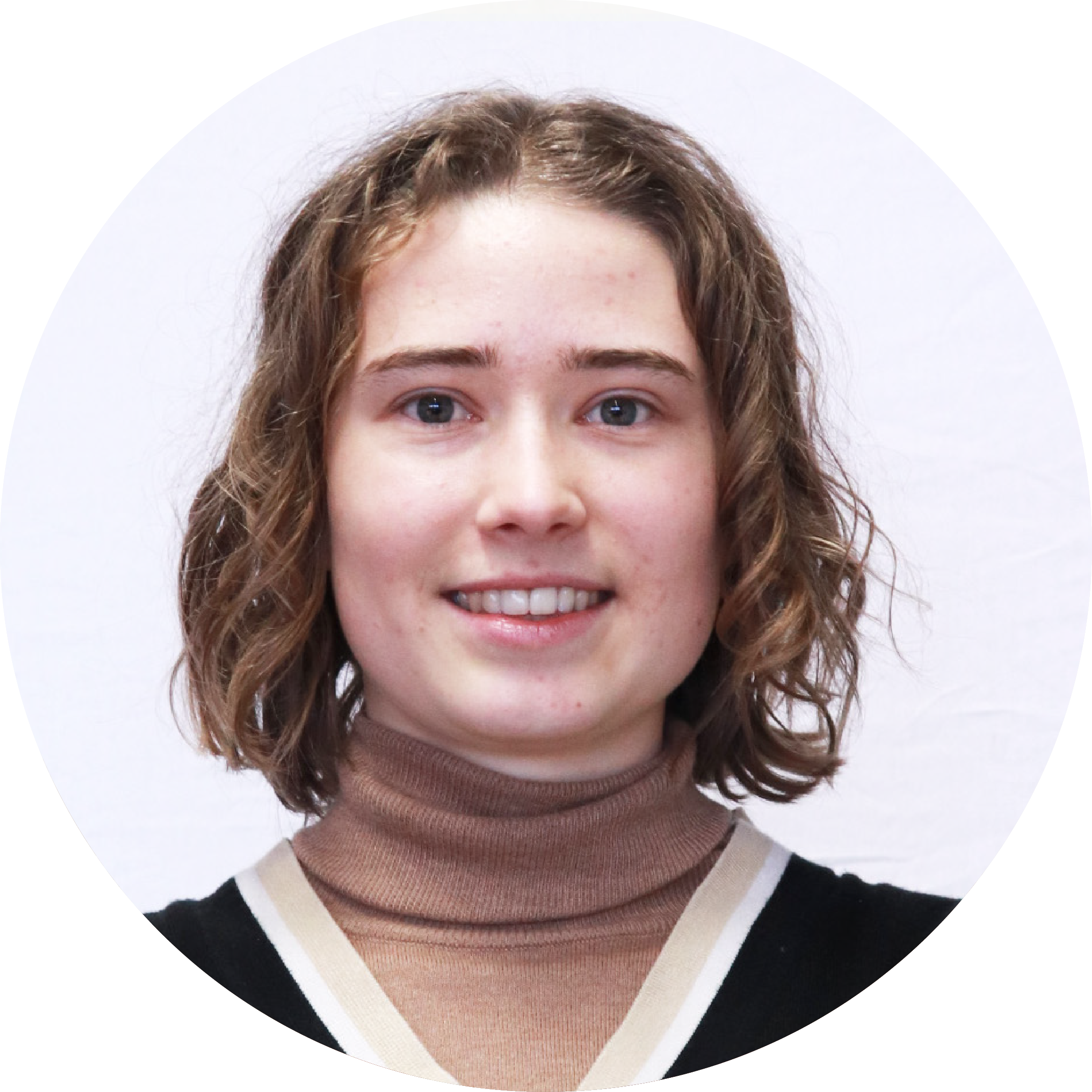LAMP (Laboratory of Applied Mycology and Phenomics) specializes in applied mycology, focusing on exploring innovative methods to control plant pathogens. In addition to mycology, we employ automated phenotyping platforms to characterize disease profiles. LAMP is also specialized in priming, biostimulants, and biocontrol techniques.
Accelerating algae product developments in Baltic and North Sea
Design of a bioactive metabolit discovery pipeline by exploiting the chemical warfare during tomatofungi interactions
Exploring levans and levan-degrading biological control organisms for plant protection
Implementing actinobacteria as a pathogen tailored biocontrol tool to reduce Fusarium graminearum and its mycotoxins in wheat
Unraveling the molecular mechanisms behind plant growth promotion by Serendipita volatiles
Methodology to develop a biostimulant from Cichorium intybus var. foliosum (Belgian Endive)
MYCOVIEW; Early and non-destructive detection of mouldy core disease in apple for prevention of Alternaria mycotoxin accumulation by an innovative machine-learning based multi-strategy approach
Unravelling the chemical ecology between toxin-producing Sarocladium and Fusarium species in the rice sheath rot disease complex


2005 - present
Kris is an associate professor in plant health at the department of Plants and Crops, Faculty of Bioscience Engineering, Ghent University. He leads a team of young researchers at the Laboratory of Applied Mycology and Phenomics (LAMP). Growing healthy crops resilient upon pathogen attack is a major challenge for agriculture in a changing climate. The mission of LAMP is to play a pivotal role in this challenge by exploring new innovations and by enabling that such innovations find their way to society.

Jan 2018 - present
Noémie received her PhD degree in Bioscience Engineering in 2023. During her PhD, she focused on the potential of phosphate solubilizing bacteria as a sustainable alternative to synthetic fertilizers. In this work, she used a combination of plant-based microbiome selection and multispectral imaging to select for rhizosphere competent microbial biostimulants alleviating P-stress in maize. Aside her main research focus, she is involved in Phdal and external service contracting with research and industry, encompassing both abiotic (i.e. drought, salinity, heat, nutrients) and biotic (i.e. fungal infections) stress on a broad variety of host plants.



Oct 2023 - present
Trang successfully completed his doctoral program at Ghent University in 2021, focusing on investigating the modes of action of Streptomyces strains against fungal phytopathogens. Subsequently, he served as a postdoctoral researcher at INRAE in France, where his research aimed to unravel the antifungal and antimycotoxin mechanisms of stilbenoids against Fusarium Head Blight, utilizing multi-omics approaches. Currently, Trang Tran holds the position of an FWO postdoctoral researcher at UGent and KULeuven. In this role, he is dedicated to exploring fructan metabolizing microbes and developing sweet immunity-mediated synthetic microbial communities (SWEETiCOM). The combination of fructans as prebiotics and SWEETiCOM has the potential to promote plant growth and enhance plant tolerance to both biotic and abiotic stresses.

Jun 2024 - Jul 2026
Louis Daniels obtained his PhD in remote and proximal sensing of nutritional disorders in grapevines, integrating spectroscopy and artificial intelligence. He is currently working as a postdoc to prepare a UGent spin-off supported by a VLAIO Innovation Mandate and IOF funding, aiming to bring this technology into the hands of farmers.



Jun 2023 - present
Sabina manages the CropFit Services Core Facility at UGent, where LAMP is a valued member. CropFit Services provides innovative bioassays to elucidate biostimulants’ and biopesticides’ efficiency and mode of action, supporting every aspect of product development. In her role, Sabina oversees public relations, manages day-to-day operations, and leverages her expertise in integrated pest management to establish a connection between academia and industry. Her efforts aim to foster collaboration, stimulate service initiatives, and generate revenue for the university.

March 2023 - present
Agustina has a joint PhD in Organic Chemistry and Pharmaceutical Sciences from Buenos Aires University and Ghent University. She works as a postdoctoral researcher in the Laboratory of Applied Mycology and Phenomics and the Centre of Excellence in Mycotoxicology and Public Health of Gent University. Her research currently focuses on combining mass spectrometry and hyperspectral imaging with a machine learning approach to achieve a non-destructive detection methodology for fungi and mycotoxins in apples.



March 2024 - present
Mathieu holds a PhD in Plant pathology from UCLouvain (Belgium). He was a postdoctoral fellow from 2021 to 2024 at Agroscope (Switzerland) in the laboratory of Virology, Bacteriology and Phytoplasmology. His work involved the biological, molecular and genomic characterization of viral, fungal and bacterial phytopathogens. Mathieu currently works at LAMP and the BW21 phytopathology laboratory on the rice sheath rot, with a focus on fungi from the genera Fusarium and Sarocladium (project G0A6S24N). For this project, a combination of comparative genomics, reverse genetics, in planta assays and mycotoxin quantification analyses will be performed, with the aim to better understand this complex pathosystem.

Nov 2008 - present
Boris is a Hogent Biochemistry graduate and lab technician, specialized in molecular techniques comprising PCR, RT-QPCR, and ELISA. Managing the lab, he efficiently handles orders and ensures lab safety, while also being a helping hand for anyone in need. Beyond his administrative role, Boris channels his artistic background into crafting graphical abstracts, posters, and web designs. This highlights his versatile skill set, combining scientific expertise, lab management, and creative contributions.



Okt 2021 - Okt 2027
Fien obtained her master’s degree in Bioscience Engineering, Cell and Gene Biotechnology at Ghent University in 2020. In 2021 she started as a teaching and research assistant at the department of Biotechnology (Ghent University). She is currently working on her PhD project focused on the phytoremediation of heavy metal polluted soils using hemp plants and the associated rhizospere microbial community. The impact of this phytoremediation process on the phenotype of the plants is studied by spectral analysis. Her supervisors are Leen De Gelder and Kris Audenaert.

Oct 2022 - Oct 2026
Laurence is working as a PhD student on the PRIMO project focusing on the biocontrol of Solanum tuberosum against Phytophthora infestans by volatile organic compounds. Biocontrol is of major importance as European initiatives are driving a paradigm shift to reduce the use of chemical phytopharmaceuticals. A specific approach in biocontrol involves harnessing the plant’s innate immune system through a phenomenon known as priming which brings the plant in a state of alertness. In our research group, we have established a proof-of-principle that the green leaf volatile Z3-hexenyl acetate (Z3-HAC) is a potent priming agent against P. infestans in potato.



Dec 2022 - Dec 2026
Jing obtained her master’s degree in Food Science; functional food and bioactive components at Chinese Academy of Agriculture Science in 2022. She started her PhD in December 2022, and is investigating a new selection pipeline for the discovery of high biocontrol bacteria against B. cinerea in tomato. The project is funded by the China Scholarship Council (CSC) and her supervisors are Kris Audenaert, Sarah De Saeger, and Caroline De Tender.

Dec 2023 - Dec 2027
Kenan holds a VLAIO Baekeland fellowship at Ghent University, specializing in synthetic biology for crop protection. his work involves designing, creating, and testing synthetic proteins to combat plant pathogen infections. Inspired by the innate immune system of plants, he explores the synergy between nature and engineering. In collaboration with esteemed partners - The Laboratory of Applied Mycology and Phenomics (LAMP – UGent), The Laboratory of Applied Biotechnology (LAB -UGent), and Biotalys – he is at the forefront of pioneering solutions for a sustainable and resilient agricultural future.



Sept 2023 - Sept 2027
Chloë obtained her master’s degree in bioscience engineering; cell- and gene biotechnology at Ghent University in 2023. She is currently working as a PhD researcher on the ODORATION project involving the development of a botanical biofiltration system for household environments, based on optimized malodorant-metabolizing rhizosphere and phyllosphere microbiomes.

Feb 2023 - Dec 2027
Jelle obtained his master’s degree in bioscience engineering; chemistry and technology at Ghent University in 2021. After graduating, he did an IOF project on the development and testing of natural product-based compounds as potential new herbicides. Currently he is working as a PhD researcher on the ODORETION project and focuses on the identification of fungal volatile organic compounds (VOC’s) and their relation to plant growth promotion under biotic and abiotic stresses. The project is funded by VLAIO and his supervisors are Kris Audenaert, Sven Mangelinckx and Willem Desmedt.



Sept 2023 - March 2027
Louka is a Ph.D. student at Ghent University, affiliated with the research group Phycology and the Laboratory of Applied Mycology and Phenomics (LAMP). As a part of the European AlgaeProBANOS project, her doctoral research focuses on the cultivation of the red seaweed Furcellaria lumbricalis in the Baltic Sea. The primary objective is to explore its potential as a feedstock for plant biostimulant production. This work involves various aspects, including seaweed life cycle control, sustainable seaweed aquaculture, population genomics, and the application of bioassays to investigate Furcellaria’s biostimulatory potential through multispectral imaging.

Sep 2024 - March 2028
Lies began her PhD studies at Ghent University in 2024 after completing her master's degree in Biochemical Engineering Technology. Her research focuses on unravelling the chemical ecology between toxin-producing Sarocladium and Fusarium species involved in the rice sheath rot disease complex. This work has significant implications for improving diagnosis, understanding epidemiology, and developing effective disease management strategies. The project is funded by the Research Foundation - Flanders (FWO), under the supervision of Monica Höfte and Kris Audenaert.



Sept 2024 - March 2028
Dylan obtained his master’s degree in Biochemistry and Biotechnology at KU Leuven in 2024. Currently, he has started to write a project titled: “Identification and quantification of nematodes in soybean plants.” This project will be handed in for a VLAIO Baekeland fellowship under the supervision of Kris Audenaert, Tina Kyndt, and BASF members Xavier Scheldeman and Alexander Galle.

Sep 2024 - March 2028
Marie successfully obtained her master’s degree in industrial engineering biochemistry at Ghent University in 2024. She is currently working as a PhD researcher on a project focusing on the characterization of metabolic interactions among plants and fungi. This research allows the identification of yet undiscovered bioactive fungal metabolites. The project is realized in collaboration with the VIB and the MEMO group (metabolic engineering of microorganisms) - UGent.



Jan 2025 - Jan 2029
Nerea obtained her master’s degree in Molecular Biology with a specialization in Microbiology at Lund University in 2024. She is currently working as a PhD researcher on a project focused on the identification of yet undiscovered bioactive fungal metabolites. This work involves the characterization of plant–pathogen interactions and the integration of various molecular biology approaches, including genomics, transcriptomics, and metabolomics. The project is carried out in collaboration with the VIB and the MEMO group (Metabolic Engineering of Microorganisms) at Ghent University.

Apr 2025 - Aug 2026
Pauline obtained her master’s degree in Bioscience Engineering Technology at the University of Ghent in 2022. After that she did a master in Viticulture and Enology at Università Cattolica del Sacro Cuore in Italy. Pauline is currently working on an IOF project supporting the development of a Ghent University spin-off to provide farmers with real-time, in-field nutrient analysis of crops. Using advanced light-based sensor technology, the interaction of light with leaf surfaces is measured to detect nutrient imbalances before visible symptoms occur.



Feb 2025 - Feb 2027
Jarno successfully obtained his Bachelor's degree in Pharmaceutical and Biological Laboratory Technology from Odisee in 2024, followed by an Advanced Bachelor's in Bioinformatics in 2025. He is currently working as a lab technician, primarily responsible for the lab's external services, and provides support with internal lab operations when needed.